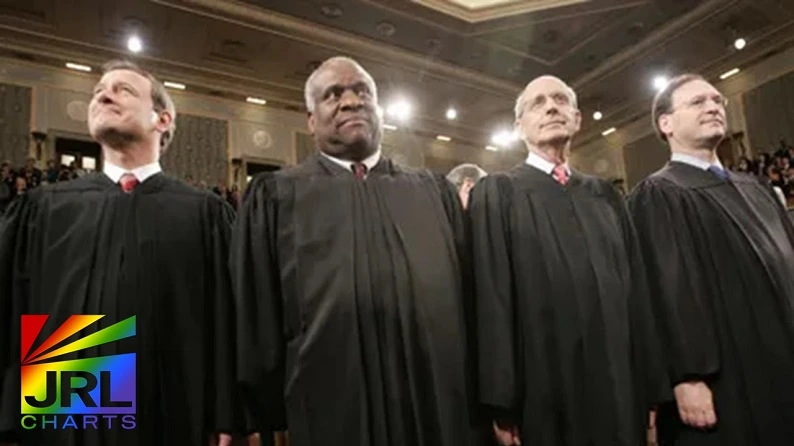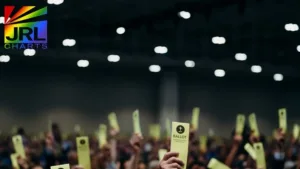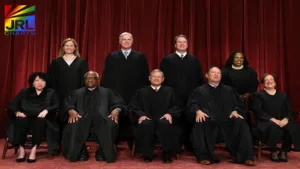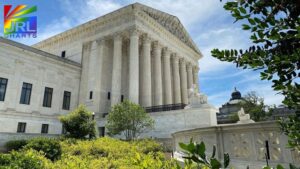By: Paul Goldberg, Senior Editor | JRL CHARTS – LGBT Politics
WASHINGTON, D.C. — (August 12, 2025) — Ten years after Obergefell v. Hodges cemented marriage equality nationwide, the U.S. Supreme Court could face its first direct request to overturn the landmark ruling. The petition comes from none other than Kim Davis, the former Kentucky county clerk who in 2015 made headlines for refusing to issue marriage licenses to same-sex couples.
Related Coverage Links on JRL CHARTS:
• Get the Latest in LGBT Politics USA Exclusively on JRL CHARTS
• Breaking Military News involving LGBTQ Service Members and Security
• LGBT Politics Europe – Updates on Hate Crimes, Judicial Rulings
• Stay Up to Date on the Happenings in LGBT Politics Asia
Davis, who spent six days in jail over her defiance, is appealing a $100,000 jury verdict in emotional damages — plus $260,000 in legal fees — arguing that the First Amendment’s free exercise of religion clause should shield her from personal liability. More explosively, her legal team is urging the high court to declare Obergefell “egregiously wrong” and overturn it entirely.
“The mistake must be corrected,” wrote Davis’ attorney Mathew Staver, dismissing Justice Anthony Kennedy’s majority opinion as “legal fiction.”
This petition marks the first formal ask since 2015 for the Court to revisit Obergefell. With her unique standing in the case, Davis is positioning herself as the face of a renewed conservative campaign to return marriage regulation to individual states.
A Broader Push Against Marriage Equality
According to Lambda Legal, at least nine states in 2025 have introduced bills or passed resolutions aimed at blocking same-sex marriage or urging the Supreme Court to reverse Obergefell. In June, the Southern Baptist Convention adopted a resolution making reversal of pro-LGBTQ marriage rulings a “top priority.”
Before Obergefell, 35 states had legal or constitutional bans on same-sex marriage. Only eight had legalized it outright.
Public Opinion & Political Risks
Gallup polling shows national support for marriage equality at 70% — up from 60% in 2015 but flat since 2020. Among Republicans, however, support has dropped sharply from 55% in 2021 to 41% in 2025.
Davis’ filing leans heavily on the Dobbs v. Jackson Women’s Health Organization precedent that overturned Roe v. Wade in 2022, quoting Justice Clarence Thomas’ call to revisit Obergefell, Lawrence v. Texas, and Griswold v. Connecticut.
Stay connected with JRL CHARTS LGBT Politics for in-depth coverage on the Supreme Court’s marriage equality docket and the political battles shaping LGBTQ rights in America.
What’s Next?
The Supreme Court is expected to consider Davis’ petition in a private fall conference. If accepted, arguments would likely be heard in spring 2026, with a decision by June. If declined, the lower court’s ruling — rejecting Davis’ First Amendment defense — will stand.
Legal scholars say it’s a long shot. “Given the popularity of same-sex marriage, the justices may prefer to let lower courts work through new challenges before reopening this debate,” said Josh Blackman, a conservative constitutional law professor.
Still, the filing signals that marriage equality is back on the political and legal battlefield — a decade after many assumed the fight was over.
Stay connected with JRL CHARTS LGBT Politics for in-depth coverage on the Supreme Court’s marriage equality docket and the political battles shaping LGBTQ rights in America.
Media Partners: For licensing inquiries, media usage rights, or republication requests, please visit our Contact Us page. All content © JRL CHARTS Media Network. Unauthorized use is strictly prohibited.
- MODUS VIVENDI Mohair Line Targets FW26 Retail Demand with Textured Luxury & Sustainable Edge - February 18, 2026
- The Mandalorian and Grogu Official Trailer Drops – In Theaters & IMAX May 22, 2026 - February 17, 2026
- EU Launches Digital Services Act Investigation Into Shein Over Online Safety Compliance - February 17, 2026
// Affiliate Disclosure: JRL CHARTS is a digital news and media platform. We do not host, stream, or sell adult content. Some outbound links may contain affiliate tracking to licensed studio-owned platforms (e.g., LatinBoyz, AEBN, BiLatin Men). These links lead to legal, age-gated distributors and are provided strictly for editorial and informational purposes only.







